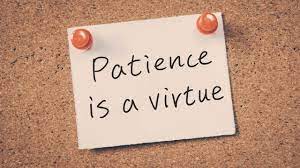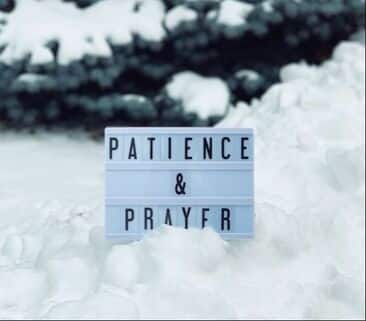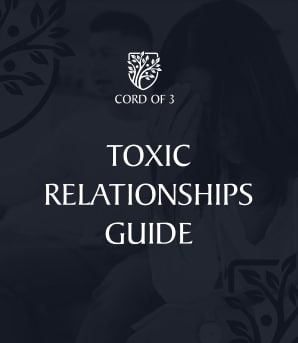Since October of 2022, Cord of 3 has been taking the time each month to dig deeper into what it means to “Rise up and Build.” We have taken this theme from the book of Nehemiah 2:18-20 where Nehemiah is rallying the Jewish people with the vision of rebuilding the walls around Jerusalem. As the people hear this challenge, they respond enthusiastically, Let us Rise up and Build.
Of course, here at Cord of 3 we are not building a wall around a great city but rather our focus is on how we can build, protect, and preserve the God-ordained institution of the family where a marriage is defined as One Man and One Woman living together monogamously till death do them part and where the parents learn to lead their children in the truths of God’s Word by teaching them diligently. When marriage and family are redefined, as the culture of America has done over the past several years, we begin to see pathologies arise. Love becomes the hallmark of feelings and circumstances rather than a work and labor of provision, protection, and faithful leadership. Fidelity is replaced with infidelity and Christ is replaced as the center of the home with “self”.
Rise up and Build

This month, our efforts to rise up and build are focused on the work of defining what Biblical Love is and should look like within each Christian family. The tools of this work are not stones and cement but rather they are Biblical precepts and an intentional obedience. The wall that we are building is not around a great city but rather around each and every great family. We will be using these Biblical precepts to encourage your obedience in ways to strengthen the love that is shared in your marriage and your family.
First, we must define love. Our world today, as stated earlier, has lost an understanding of the Biblical idea of love and replaced it with the idea of feelings and circumstances. For a marriage to begin based solely on how you feel is a dangerous beginning. For a marriage to end because you “fell out of love” is both dangerous for you and it is a sin. Love is not defined by feelings, love is defined by the actions and behaviors that God’s Word defines love as. Pay close attention to the verbs that tell us what to do and what not to do when we are acting in charity (Love).
1 Though I speak with the tongues of men and of angels, and have not charity, I am become [as] sounding brass, or a tinkling cymbal. 2 And though I have [the gift of] prophecy, and understand all mysteries, and all knowledge; and though I have all faith, so that I could remove mountains, and have not charity, I am nothing. 3 And though I bestow all my goods to feed [the poor], and though I give my body to be burned, and have not charity, it profiteth me nothing. 4 Charity suffereth long, [and] is kind; charity envieth not; charity vaunteth not itself, is not puffed up, 5 Doth not behave itself unseemly, seeketh not her own, is not easily provoked, thinketh no evil; 6 Rejoiceth not in iniquity, but rejoiceth in the truth; 7 Beareth all things, believeth all things, hopeth all things, endureth all things. 8 Charity never faileth: but whether [there be] prophecies, they shall fail; whether [there be] tongues, they shall cease; whether [there be] knowledge, it shall vanish away. 9 For we know in part, and we prophesy in part. 10 But when that which is perfect is come, then that which is in part shall be done away. 11 When I was a child, I spake as a child, I understood as a child, I thought as a child: but when I became a man, I put away childish things. 12 For now we see through a glass, darkly; but then face to face: now I know in part; but then shall I know even as also I am known. 13 And now abideth faith, hope, charity, these three; but the greatest of these [is] charity.
1 Corinthians 13:1-13

These action words declare to us the stones necessary to rebuild love within every marriage and family. Words such as suffering long, kind, is not prideful, seeks out the needs of others, does not behave unseemly, slow to anger, does not think evil, bears all things, believes all things, hopes all things, are critical to having healthy and thriving relationships.
Of all the words that we could use to describe a loving family, we will focus on one of the most important verbs: having PATIENCE. Patience is defined as “the capacity to accept or tolerate delay, trouble, or suffering without getting angry or upset. Patience provides a place where hope can take root and grow. The practice of applied, hopeful, deliberate patience can facilitate all kinds of healing. Here are 5 ways that we can build up love in the family in our application of patience with each other:
- Patience is not something that we talk about only, it is something that we must practice.
Patience is a choice which means this is something that we have to decide to do and not something that we “wish” we had done.



2. Patience is the intervention necessary to make adjustments during the building process.
Patience is a tool we can apply to any situation. Once we understand the benefits of patience and
choose to apply it, we won’t react with anger in most cases. We don’t magically find patience one day
by tripping over it, we simply pick it up and use it.
IN YOUR PATIENCE POSSESS YE YOUR SOULS
3. Be mindful of your expectations as you exercise patience.
Our expectations are often what causes us to have problems with exercising patience. Unspoken expectations of your spouse, your children, or your parents, can create a poison in the relationships that slowly deteriorates the overall health of your relationship. Be clear about what your expectations are, be clear in communicating those expectations, and be willing to give up your expectations if those expectations are not in alignment with God’s Will.

4. Be mindful that the relationship is the focus of exercising patience, not the act itself.
Exercising patience is about what it produces in terms of the quality of the relationship,
not in just the mere fact that you have exercised patience. Often, we expect
immediate results when we put something into practice but when it comes to
relationships, you can’t expect immediate results, you must focus on the overall
quality of your relationship that is measured by the fruit of the Spirit.
5. Actively use patience to help you exercise love and problem-solving.
All relationships are going to have problems, quarrels, and even fights. The antidote
to all of these is the practice of patience. Being patient with yourself, with your
spouse, with your children, and even with your parents is crucial. A lack of patience
communicates the certain feeling of rejection with the undertone of “I don’t love you
enough to work on this with you.” Be patient as you work through problems, the love
it produces is far better than what comes from expecting quick solutions and quick
fixes.
